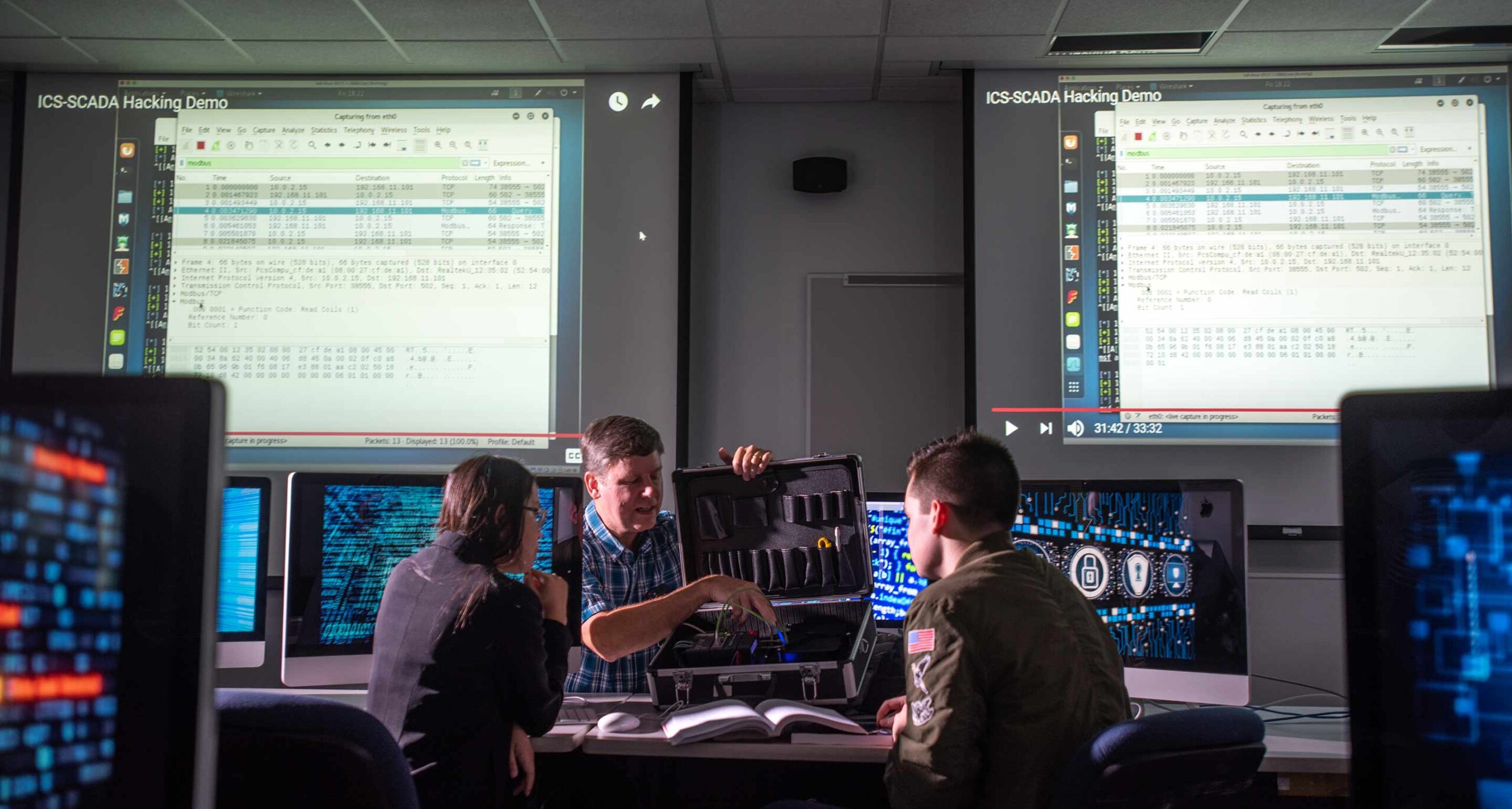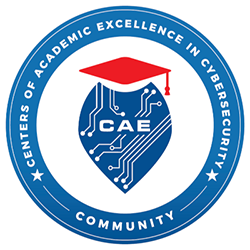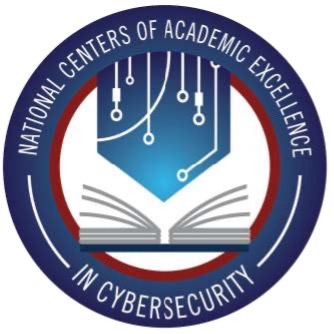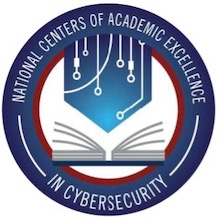A Nationally Recognized Cybersecurity Program Built for Ethical Leaders and Career Success
Assumption University’s Bachelor of Science in Cybersecurity prepares students for in-demand cybersecurity careers while developing ethical leaders grounded in Assumption’s Catholic and liberal arts tradition. Students gain hands-on technical skills, real-world experience, and the critical thinking and communication abilities employers value most.
Assumption’s Cybersecurity program is designated by the National Security Agency (NSA) and the Cybersecurity and Infrastructure Security Agency (CISA) as a National Center of Academic Excellence in Cybersecurity (NCAE-C)—a distinction that places Assumption among a select group of nationally recognized cybersecurity programs.

 Assumption University has been designated as a National Center of Academic Excellence in Cyber Defense through the academic year 2028.
Assumption University has been designated as a National Center of Academic Excellence in Cyber Defense through the academic year 2028.
Why Major in Cybersecurity at Assumption University?
Cybersecurity at Assumption goes beyond learning tools and technologies. Students are educated to understand the human, ethical, and organizational dimensions of cybersecurity while building strong technical foundations.
You will:
- Develop technical expertise in protecting systems, networks, and data
- Build a strong ethical framework centered on trust, integrity, and responsibility
- Strengthen communication, problem-solving, and leadership skills through a liberal arts education
- Prepare for lifelong learning in a rapidly evolving cybersecurity field
- Participate in the Foundations Program, which forms students known for intellectual seriousness, thoughtful citizenship, and commitment to the common good
This approach prepares graduates to adapt, lead, and succeed in a wide range of cybersecurity roles.
National Recognition & Exclusive Cybersecurity Opportunities
Assumption University is one of a limited number of institutions nationwide designated as a National Center of Academic Excellence in Cybersecurity (NCAE-C) by the NSA and CISA. Only a small number of colleges and universities in Massachusetts hold this distinction, and Assumption was among the earliest programs to earn this recognition.
This national designation provides students with access to exclusive opportunities, including:
- GenCyber grant-funded programs supported by the NSA
- Mentorship and leadership roles in the Cybersecurity Summer Camp
- Eligibility for the highly competitive SMART Scholarship-for-Service Program, which offers full tuition, annual stipends, paid internships, and guaranteed employment with the U.S. Department of Defense after graduation
Cybersecurity faculty also serve as mentors and reviewers for other institutions seeking NCAE-C designation, reinforcing Assumption’s leadership in cybersecurity education.
Raymond T. Albert, Ph.D.
Faculty
From Assumption to RTX: Michael's Path to Protecting the Digital World
Michael O'Reilly, Principal Cyber Tactician of Threat Defense Operations at RTX
Pathway to Success
The Bureau of Labor Statistics forecasts a 28-percent growth for information security analyst positions, rating the field with “much faster than average” growth. Sample work roles based on the National Institute of Standards and Technology “NICE Cybersecurity Workforce Framework” include the following:
Security Architect
Cyber Defense/Forensics Analyst
Cyber Defense Incident Responder
Secure Software Assessor
Threat/Exploitation Analyst
Systems Security Analyst
Vulnerability Assessment Analyst
See Assumption University In Person
From our state-of-the-art academic buildings and exceptional academic programs to our welcoming and supportive community, Assumption isn't just a university - it's the place you can call home. Visit us and see why.

























